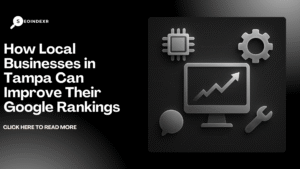In today’s rapidly evolving digital landscape, leveraging Artificial Intelligence (AI) is no longer optional it’s essential. Traditional SEO remains a cornerstone of online visibility, but when paired with AI, it transforms into a dynamic, data-driven powerhouse. In this blog, we’ll explore how to combine AI and traditional SEO strategies to boost your website performance, improve rankings, and enhance your digital marketing workflows for 2024 and beyond.
Table of Contents
ToggleUnderstanding Traditional SEO
Search Engine Optimization (SEO) is the art and science of optimizing your website so that it ranks higher on search engine results pages (SERPs). Traditional SEO methods include:
- Keyword research
- On-page optimization (meta tags, headings, content)
- Technical SEO (site speed, mobile-friendliness, indexing)
- Backlinks and off-page SEO
- User experience and engagement metrics
These strategies, while foundational, require time, effort, and consistent updates. The emergence of AI has supercharged how we approach each of these elements.
What is AI in SEO?
AI (Artificial Intelligence) in SEO refers to the use of machine learning algorithms, natural language processing (NLP), and big data analytics to automate and enhance the SEO process. Tools powered by AI are capable of performing tasks like:
- Advanced keyword suggestions
- Content optimization using NLP
- Search trend analysis and prediction
- Intent-based content recommendations
- SEO auditing at scale
Popular tools such as ChatGPT, Google’s BERT and MUM algorithms, Surfer SEO, Jasper, and Clearscope utilize AI to reshape how content is optimized and discovered online.
Why Combining AI and Traditional SEO Is the Future
While traditional SEO lays the groundwork for visibility, AI amplifies its effectiveness by providing real-time, data-driven insights and automation. Below are key reasons why combining the two is crucial:
- Data-Driven Decision Making: AI can analyze millions of data points in seconds, aiding in more accurate SEO decisions.
- Enhanced Personalization: Personalizing content for different audience segments becomes easier with AI-driven insights.
- Automation for Efficiency: AI reduces manual tasks like keyword tracking, link auditing, and reporting.
- Better User Experience: With AI tools analyzing user behavior, content and UX can be tailored more effectively.
How to Integrate AI with Traditional SEO Strategies
1. Use AI Tools for Smarter Keyword Research
Instead of relying purely on manual research via Google Keyword Planner, use AI-powered platforms like SEMrush, Ahrefs, or Ubersuggest (now deploying AI modules) to identify long-tail keywords, discover semantic variations, and anticipate future trends. These tools use machine learning models that identify not only high-volume keywords but also keywords with high potential based on user intent and seasonal trends.
2. Optimize Content with NLP
Tools like Surfer SEO and Clearscope utilize Natural Language Processing to evaluate your content quality and relevance compared to top-ranking competitors. They suggest topic coverage, keyword density, and content structure improvements to increase relevancy as interpreted by Google’s AI algorithms like BERT and RankBrain.
3. Leverage ChatGPT and AI Writers (Responsibly)
AI writing tools can significantly accelerate content production. However, using them requires a balanced approach. While ChatGPT or Jasper can generate first drafts or outlines, human creativity and fact-checking ensure uniqueness and accuracy. This synergy produces high-quality, optimized content efficiently.
4. Improve Technical SEO with AI Audits
AI-powered SEO audit tools like Screaming Frog or Sitebulb can crawl your website and provide actionable insights into broken links, duplicate content, site speed, and mobile-friendliness. These metrics are crucial for technical SEO, and AI tools help process large-scale sites faster than manual checking.
5. Predict Trends and Search Intent Using AI
Platforms like Google’s MUM can analyze images, videos, and text across 75 languages to understand search intent better. SEO strategists can use trend analysis platforms like Exploding Topics or Glimpse to prepare future content calendars aligned with emerging user intent. Creating content that answers queries before they trend is a competitive advantage AI offers.
6. Improve Voice Search Optimization
With AI-driven voice assistants becoming widespread, optimizing for conversational keywords is now essential. AI can help generate voice-search-friendly content by analyzing queries posed in natural language and identifying relevant FAQs to include in your website content.
7. Automate Reporting and Monitoring
Modern data visualization powered by AI through Google Looker Studio (formerly Data Studio), Tableau, and even Excel integrations can build SEO dashboards. These tools aggregate metrics from Google Search Console, Analytics, and third-party SEO data for real-time insights. Automating weekly or monthly reports allows SEO professionals to focus on strategy rather than manual tracking.
Case Study: AI + SEO in Action
A leading eCommerce company improved its organic traffic by 43% in 6 months by combining traditional SEO efforts (technical clean-up, content modeling) with AI tools like Surfer SEO and SEMrush’s Keyword Magic tool. The transformation involved:
- Using AI to track competitor keyword gaps
- Optimizing underperforming content with NLP suggestions
- Redesigning titles and meta tags using AI A/B testing insights
- Setting up dynamic internal linking structures using AI-driven site maps
Risks and Challenges of AI in SEO
Despite the advantages, blending AI with SEO comes with challenges:
- Over-Reliance: Excessive dependence on AI-generated content can result in low-quality, duplicate, or misaligned content with brand tone.
- Data Privacy: SEO data, when processed by AI tools, must comply with GDPR and other data protection norms.
- Black-Hat SEO Risk: AI can be used for manipulative tactics like spinning content or automated backlink generation, which can attract penalties.
The key lies in using AI as a supplement—not a replacement—for strategic human judgment and creativity in SEO plans.
Tips for a Balanced AI + Traditional SEO Strategy
- Conduct content audits every quarter using both AI tools and manual review for quality assurance.
- Always human-proof your AI-generated content to ensure relevance and brand alignment.
- Stay updated with Google algorithm changes, many of which are introducing AI-powered ranking models.
- Create a keyword strategy that includes voice search, semantic search, and user intent optimization.
- Monitor AI advancements and integrate useful, ethical tools into your digital toolkit.
Future of SEO: The AI-First Era
Google’s Search Generative Experience (SGE) and AI Overviews are changing how users interact with content. AI in SEO is no longer just about tools—it’s about adapting to an entire search ecosystem driven by machine learning. Future-proofing your SEO strategy today involves strategically incorporating AI while continuously valuing human insight, creativity, and ethical frameworks.
Conclusion
Combining AI and traditional SEO strategies is no longer optional but essential for digital success. AI enhances every step of the SEO journey, from data analysis to predictive modeling and content optimization. However, human-centric SEO principles—authenticity, relevance, and value—remain irreplaceable. The most effective strategy marries human intelligence with artificial intelligence to deliver content that ranks well, resonates with users, and respects search engine guidelines.
FAQs About AI and Traditional SEO Strategies
Q1: Will AI replace traditional SEO completely?
No. AI enhances traditional SEO by automating tasks and providing data-driven insights, but human strategy, creativity, and ethics remain essential.
Q2: Which AI tools are best for SEO in 2024?
Top tools include Surfer SEO, Jasper, ChatGPT (for ideation), SEMrush, Ahrefs, Clearscope, and MarketMuse. The right tool depends on your goals—content planning, optimization, or data analysis.
Q3: Are AI-generated articles good for SEO?
Only if edited by humans. Raw AI-generated content lacks the nuance, accuracy, and brand tone required





